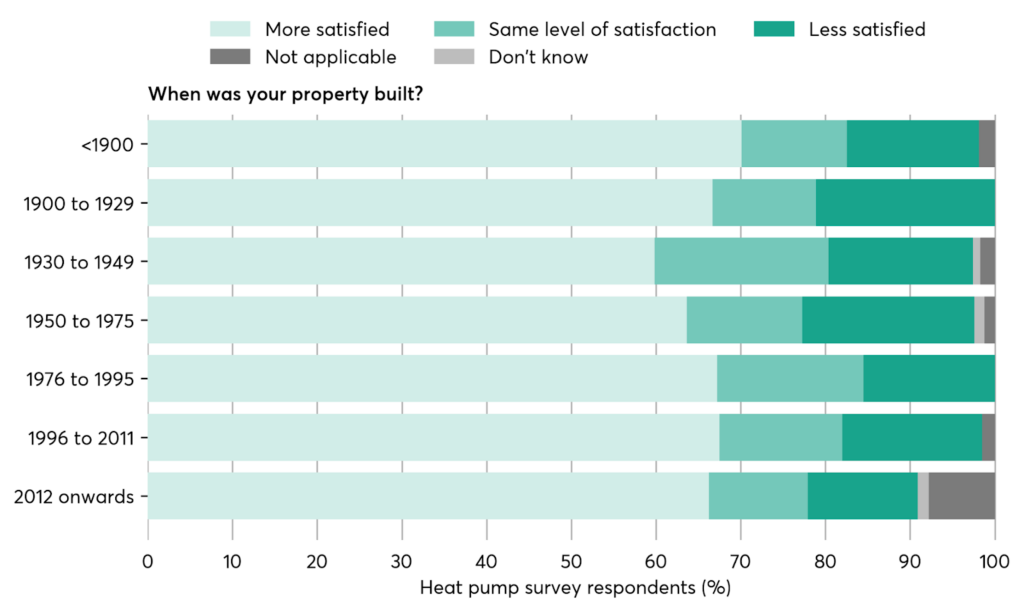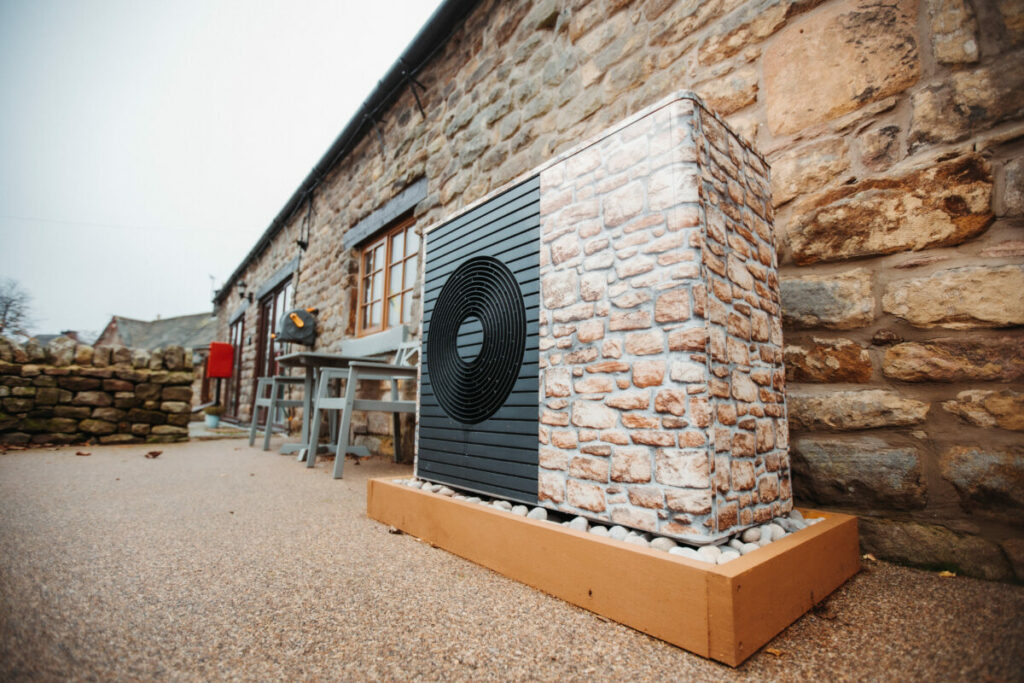According to a new survey released by innovation charity Nesta, 60-70% of heat pump customers are ‘more satisfied’ with the system than they were with their previous one.
The survey, which was led by consultancy Eunomia and commissioned by innovation charity Nesta, assessed over 2,500 domestic heat pump owners and over 1,000 domestic gas boiler owners in England, Scotland and Wales, in December 2022.
It found that 81% were satisfied or more satisfied regarding their heat pump, compared to their previous heating system.
The figure is also similar (83%) when observing heat pump owners in Victorian or older properties – buildings that have commonly been cited as poor in terms of energy efficiency.
The similarity across property type and age suggests that heat pumps are likely to be effective across the range of residential property types in Britain.

Despite this impressive statistic, there still remains nearly 20% that are not satisfied with their new heat pump systems. The survey does not explicitly declare why this is however it is widely noted that heat pump installations faced long delays in 2022 as a result of supply chain issues.
Turning back to the survey, over half of users (55%) that had a heat pump installed also undertook building fabric upgrades, such as loft insulation, wall insulation and double or triple glazing.
Energy efficiency within homes has become a hotly debated topic across the energy sector with many believing that more must be done by the UK Government to improve conditions within homes.
Improving energy efficiency within homes could have major benefits for the UK’s decarbonisation prospects. With many sectors turning to electrification to decarbonise, notably transportation and heat, the uptake in demand could cripple the UK.
Writing for Current± in early May, Ken McMeikan, CEO at Moto Hospitality stated that “to service the growing demand for EVs, by 2030 alone, EV charging capacity will require an incredible twelve times as much energy as we currently use today”.
But the utilisation of heat pumps could reduce electricity consumption significantly opening capacity for other technologies and decarbonisation opportunities. Current± reported yesterday (30 May) that the wide-spread deployment of ground source heat pumps (GSHP) alongside demand shifting could reduce Britain’s electricity consumption by up to 24TWh a year by 2050. This is according to energy consultant Element Energy.
Implementing other energy efficiency measures as stated above could reduce the electricity demand further by keeping homes well insulated so they are able to retain heat throughout the winter months.
Satisfaction is highest among people who chose to install a heat pump in their own homes, according to the survey, although it is revealed that the majority of those moving into a new build or existing property with a heat pump also say they are as or more satisfied with their heat pump.
Nesta has also made several recommendations for the UK Government to consider should it wish to continue to support heat pump installations and sufficiently decarbonise the heat sector. These include:
- Reducing heat pumps costs by committing additional funding for the Boiler Upgrade Scheme to support its extension to 2028, exploring options for low-cost government-backed finance, and reducing the price of electricity relative to gas.
- Working with industry to come up with ways to reduce the time and disruption associated with installation and make clear, impartial information about heat pumps more easily accessible, so it is easier for people to use their heat pump once they have one.
- Ensuring the UK meets its stated timetable for phasing out fossil fuel heating: ending gas grid connections for new build homes in 2025, ending new installations of oil and LPG boilers from 2026, and ending new gas boiler installations by 2035 at the latest.
The survey also states that “heat pump ‘inheritors’ – who move into homes with heat pumps already installed – would benefit from more information on how to use their systems, as many had very little awareness of heat pumps before moving into their properties”.
“It’s time to put to rest outdated ideas that older homes don’t support heat pumps. The rollout of heat pumps across all property types in Britain is proving that the age of your house doesn’t have to be a big factor when deciding whether to get a greener heating system,” said Madeleine Gabriel, director of sustainable future at Nesta.
“Heating homes with fossil fuels like gas contribute as much as 15% of the UK’s carbon emissions and so the switch to heat pumps is crucial for getting to net zero. This is the first time we’ve been able to get a fuller picture of the experiences of people keeping their homes warm with heat pumps, and the high levels of satisfaction are encouraging.
“With heat pumps getting the thumbs up from those that use them, the Government should redouble its efforts to meet the timetable it has set out for phasing out fossil fuel heating. It should be easier and cheaper for people to opt to replace gas boilers with renewable heating when a boiler reaches the end of its life.”






